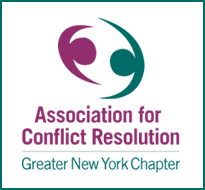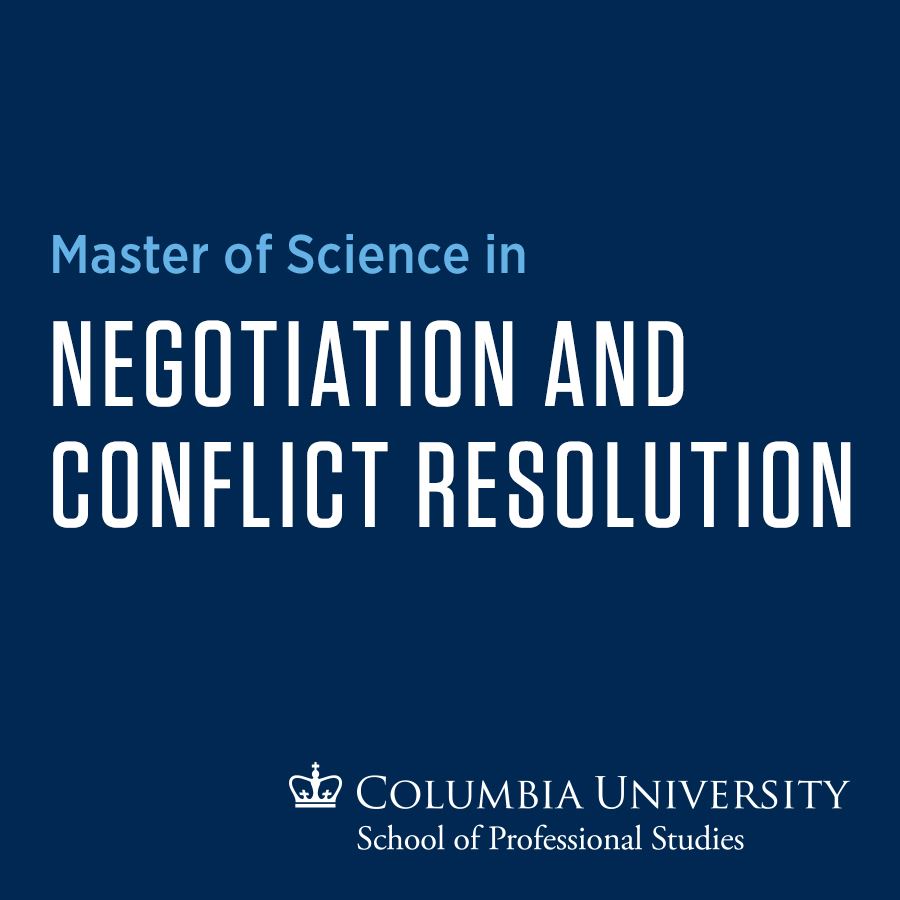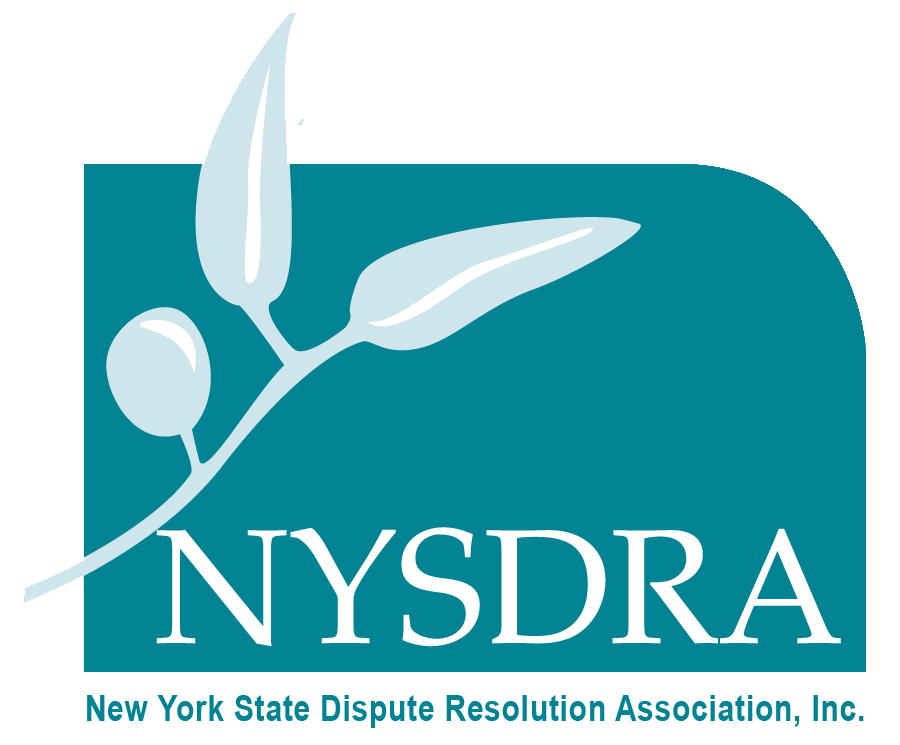|

| TIME | FRIDAY, JUNE 2 |
| 9:00am |
Creative Response to International Restorative Circle Practices (Presented by Tara Fishler, Priscilla Prutzman) |
| 10:10am |
How to use self-awareness of our speed as conflict professionals to help our clients (Presented by Michelle Exline Minovi, Hansa Patel) |
| 11:20am |
The Intersection of Emotional Intelligence and Speed in Conflict Resolution (Presented by Marsha Hilton) |
| 12:30pm |
The urgent need for family estrangement conflict interventions: Results from a national survey (Presented by Lisa M. PytlikZillig, Ashley M. Votruba, Kristen Blankley) |
|
BREAK
|
|
| 1:30pm |
|
| 2:10pm |
Levels of Listening: Skills to Move Difficult Conversations Forward (Presented by Betty Chan) |
| 3:35pm |
Peer Mediation among Refugee Communities: A Path to Self-efficiency and Sustainable Conflict Prevention (Presented by Helen Winter) |
Session tracks
• Commercial ADR (Business, Finance, Securities)
• Interpersonal (Family/Divorce, Restorative Justice, CDRC, Interfaith)
• Organizational/Governmental (Labor/Employment/Workplace, Schools, Co-op/Condo, Ombuds)
• Peacebuilding/CR Process (International, Societal, NGO, Large Scale)
• Dispute Prevention, Negotiation, and Other Resolution Skills
• Other
SESSION #20 - 9:00am
Creative Response to International Restorative Circle Practices
Presented by: Tara Fishler, Priscilla Prutzman
Learn how to apply restorative practices with an international community! After Creative Response to Conflict led a workshop at a peace education conference in India on restorative practices, participants wanted to continue learning, so we created a virtual circle which began our International Restorative Circles (IRC) group. This revolving group has continued to meet monthly for over three years, exploring and experiencing challenges and solutions for integrating restorative practices into many fields and communities. Join us to learn about the IRC and experience our virtual circle process. Come away with some advanced techniques to conduct restorative circles in person and virtually, including tips to discuss difficult topics.
••••
SESSION #21 - 10:10am
How to use self-awareness of our speed as conflict professionals to help our clients
Presented by: Michelle Exline Minovi, Hansa Patel
Learn to increase your capacity as conflict professionals by developing self-awareness of your speed, i.e., your inner reactions and judgments to parties that may interfere with understanding the parties and the conflict resolution process. Throughout this session, we will work on the following learning objectives:
1. Practice deepening understanding of self
2. Gain further insights into the relationship between inner and outer self as a conflict professional
3. Recognize and minimize the impact of judging parties
4. Begin to notice your own speed and how to intentionally use speed as a tool in mediation.
•• (Appropriate for multiple disciplines of conflict resolution)
SESSION #22 - 11:20am
The Intersection of Emotional Intelligence and Speed in Conflict Resolution
Presented by: Marsha Hilton
This session will explore the crucial role of emotional intelligence in conflict resolution. Through this session, attendees will learn how emotional intelligence can be used to increase the speed and effectiveness of conflict resolution, without sacrificing the integrity of the process. The session will focus on practical strategies for leveraging emotional intelligence to build rapport with clients and move towards resolution more quickly.
Attendees will leave this session with a better understanding of how emotional intelligence can be harnessed to achieve better outcomes in conflict resolution. They will gain insights into the benefits of building strong relationships with clients and how emotional intelligence can be used to navigate complex and emotionally charged conflicts more effectively. The session will also touch on the importance of maintaining ethical standards and building trust with clients, even when operating at a faster pace.
This session is ideal for practitioners, academics, and anyone interested in improving their conflict resolution skills. By attending this session, attendees will gain valuable insights into the intersection of emotional intelligence and speed in conflict resolution, and walk away with practical strategies for applying these concepts in their work.
••••
SESSION #23 - 12:30pm
The urgent need for family estrangement conflict interventions: Results from a national survey
Presented by: Lisa M. PytlikZillig, Ashley M. Votruba, Kristen Blankley
Throughout an individual's lifespan, their family may provide emotional, social, and financial support. However, such support is hindered by family estrangements, which involve conflict-driven loss of contact among adult family members such as parents/adult children, siblings, or extended family members. Prior studies estimate such estrangements may directly implicate 25% or more of the adult population and impact many others. At the same time, almost no interventions exist specifically to address the unique conflicts underlying adult family estrangements. Furthermore, little research has focused on the impacts of such estrangements and whether and how people might like to be assisted when they are affected by estrangements. In a U.S. nationwide representative (by gender, race, and age) survey of approximately 1000 adults, we assessed the prevalence of self-reported estrangements, the reported impacts of such estrangements, and other characteristics such as whether and how estrangements intersected with the legal system. Further, we will describe the extent to which respondents indicated a desire for help with family estrangement situations, the sorts of help they prefer, and how these preferences relate to trust in different institutions. We argue our results show an urgent need for the development of resources and interventions specific to conflicts underlying family estrangement.
•
SESSION #24 - 1:30pm
Navigating Cultural Differences in Communication: Strategies for Resolving Conflict in Collectivistic and Individualistic Societies
Presented by: Suzzette Harriott
This presentation is designed to provide attendees with a comprehensive understanding of the key differences in communication styles between collectivistic and individualistic societies, with a specific focus on how these differences can impact conflict resolution processes. Through an exploration of cultural values, norms, and expectations that shape communication patterns, attendees will gain practical strategies for navigating these differences to achieve more effective and equitable outcomes in conflict resolution.
In order to facilitate a deeper understanding of these concepts, the presentation will utilize interactive exercises and case studies, which will provide attendees with a real-world understanding of how cultural biases and stereotypes can impede effective communication and conflict resolution. Additionally, we will discuss the importance of building cultural competence and self-awareness in conflict resolution processes, and how to achieve this through ongoing training and education.
By the end of this presentation, attendees will have gained valuable insights into the role of culture in conflict resolution, and developed practical skills and strategies for working effectively with individuals from diverse cultural backgrounds. This session is relevant for conflict resolution practitioners working in a variety of contexts, including community-based organizations, international organizations, and businesses operating in global markets, as well as for anyone seeking to gain a deeper understanding of cultural differences in communication.
•••••
SESSION #25 - 2:10pm
Levels of Listening: Skills to Move Difficult Conversations Forward
Presented by: Betty Chan
We all experience it – being in a conversation where we don't feel heard. This creates resistance. We stop being open to new ideas and feedback crucial to our everyday interactions and personal growth. Over time it can lead to burnout and disengagement even from the most dedicated. Together we will explore your natural listening level and practice moving between them.
Participants will:
• Learn the distinctions between the three levels of listening and when to use them
• Take turns practicing the levels and reflecting with a partner on the impact of each
• Practice being out loud about your bias and judgments in a low-risk environment
••••
SESSION #26 - 3:35pm
Peer Mediation among Refugee Communities: A Path to Self-efficiency and Sustainable Conflict Prevention
Presented by: Helen Winter
This webinar will explore the link between peer mediation and self-efficacy of refugee populations. The charitable organization R3SOLUTE has successfully implemented peer mediation mechanisms in refugee shelters in Germany over the past 5 years. Those who are trained as peer mediators find meaning and a purpose in their new role as peace makers, and are also those who move out of the refugee shelter and find a job. In her research, Helen Winter has examined and outlined the link between peer mediation and self-efficacy of marginalized communities such as refugees. In this webinar she will address the challenges and best practices of her peer mediation program with refugees in Germany, as well as address the need for systemic change and policies encouraging agency of refugee populations through ADR.
••




